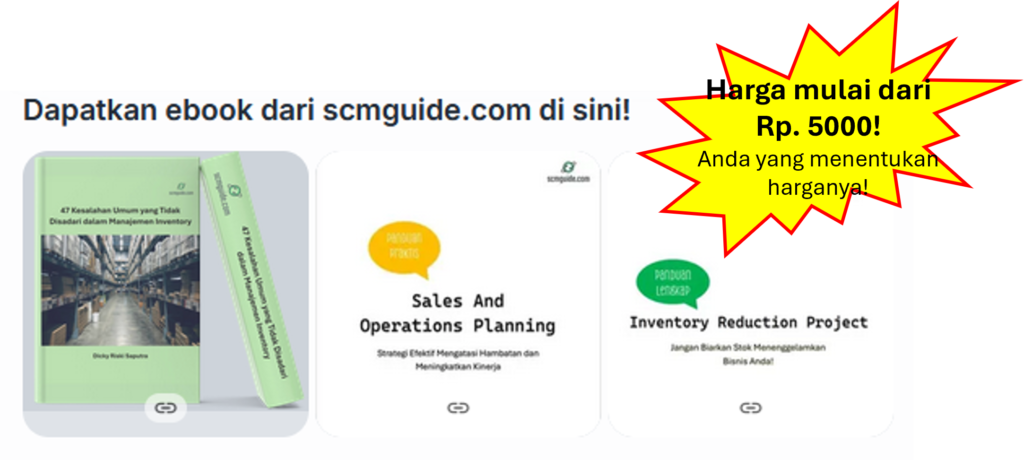Supply chain audit is the process of evaluating and testing all aspects of your supply chain, including planning, purchasing, production, delivery, and customer service.
Its aim is to ensure that you meet established standards, minimize risks, and improve supply chain efficiency and effectiveness. During the audit process, it is important for you not to hide anything related to your supply chain operations.
Why?
Because your honesty and transparency are key to ensuring the success of the audit. Concealing information or refusing to grant access to the auditor will only hinder the audit process and worsen the condition of your supply chain.
In this post, we will discuss the true meaning of supply chain audit, the importance of transparency during the audit process, and optimizing the audit process as an opportunity for improvement and overall supply chain efficiency enhancement.
But before that, make sure you have joined the scmguide telegram channel to receive notifications of the latest posts from this blog as well as more insights on other supply chain management topics.
Table of Contents
The true meaning of supply chain audit
Supply chain audit is the process of evaluating all aspects of your supply chain, from sourcing raw materials to delivering products to customers.
Its main objective is to ensure that your supply chain operates effectively, meets established standards, and minimizes risks.
Supply chain audit can also help you identify improvement opportunities and enhance overall supply chain efficiency.
The supply chain audit process begins with collecting information and documents related to the supply chain, such as contracts, vendor lists, purchase records, production records, and shipping records.
Next, the auditor will evaluate the data provided to ensure that your supply chain processes are being carried out correctly and meeting established standards.

The auditor will also conduct interviews with your employees involved in the supply chain to ensure that the processes being followed are in line with established procedures.
The results of the audit will then be communicated in the form of a report, which will include findings and recommendations for improvement.
You can then use the information provided in the audit report to further enhance the efficiency and effectiveness of your supply chain.
You might also like:
- 5 Supply Chain Challenges Before You and How to Overcome Them
- How to Make KPIs that Work Both Ways to Beat the Competition
The importance of transparency during the audit process
During the supply chain audit process, transparency is crucial.
As I mentioned earlier, honesty and transparency are the keys to ensuring a successful audit.
There are several reasons why transparency is essential during the audit process, including:
- Ensuring the accuracy of financial statements. With transparency, auditors can verify the accuracy of your financial statements and ensure that all transactions are recorded correctly.
- Minimizing risk. Transparency allows auditors to identify risks in your supply chain and provide recommendations to minimize those risks.
- Improving efficiency and effectiveness. With transparency, auditors can identify opportunities for improvement and provide recommendations to improve the efficiency and effectiveness of your supply chain.
The negative impact of hiding information during the audit process is also significant, including:
- Worsening the condition of the supply chain. By hiding information, you may overlook the actual problems that exist in the supply chain, which can then worsen the condition of the supply chain.
- Losing trust. By hiding information, you can lose the trust of the auditor and other stakeholders.
- Negative impact on reputation. If errors are found during the audit process, you may experience a negative impact on your reputation and image.
Next question, how to ensure transparency during the audit process? There are several ways you can do this, including:
- Prepare the necessary documents and information before the audit process begins.
- Be honest and open in answering the auditor’s questions.
- Use a transparent and well-documented supply chain management system.
- Protect sensitive information appropriately.
- Display a cooperative and professional attitude during the audit process.
You might also like:
- How to Set Cost Reduction Target Based on Supply Chain Cost Drivers
- How to Treat KPIs the Right Way to Improve Your Supply Chain Performance
Optimizing the audit process as an opportunity for improvement
Audit of the supply chain is not just about finding problems in your supply chain, but also an opportunity for improvement and enhancement.
Therefore, it is important for you to view the audit as an opportunity to improve and increase the efficiency of the supply chain, rather than to look for your mistakes.
After the auditor provides the audit report, you can use the findings of the audit to improve the efficiency of your supply chain.
You can use the audit findings to propose the necessary improvements to your top management.
Some ways to use the audit findings include:
- Identifying problems and determining solutions. You should identify the problems revealed in the audit report and determine the solutions needed to address these problems.
- Establishing an action plan. After solutions are determined, you should establish a clear and realistic action plan to address the problems found during the audit.
- Integrating improvements into the supply chain management system. You should ensure that the established improvements are integrated into your supply chain management system.
- Conducting a re-evaluation. After the improvements are implemented, you should conduct a re-evaluation to ensure that the improvements have achieved the desired results.
In the long term, you can also implement sustainable improvements in the supply chain management system, such as vendor selection processes, quality control, and risk monitoring.
By implementing sustainable improvements, you can increase the efficiency and effectiveness of the supply chain and reduce the risks associated with the supply chain.

The audit of the supply chain is an opportunity for you to improve and increase the efficiency of your supply chain.
Therefore, you must ensure transparency during the audit process and use the audit findings to make short-term and long-term improvements in the supply chain management system.
Conclusion
In supply chain audit, transparency is crucial to ensure that the audit report reflects the actual condition of your supply chain.
Hiding information during the audit process can have negative impacts that can harm you, such as a damaged reputation, legal risks, and financial losses.
Supply chain audit is also an opportunity for you to make improvements and enhance the efficiency of your supply chain.
You should use the audit findings to establish action plans and implement sustainable improvements in your supply chain management system.
In the audit process, the auditor is not only looking for problems in your supply chain but also acts as a partner to help you achieve long-term success.
Therefore, you should view the auditor as a partner (not an enemy) and provide cooperation and transparency throughout the audit process.
Once again, supply chain audit is not only about finding problems, but also an opportunity for improvement and enhancement.
Therefore, you should ensure transparency during the audit process and use the audit findings to make short-term and long-term improvements in your supply chain management system.
We hope this is helpful!
Please share this article with your colleagues so that they can also benefit from it. Join the scmguide telegram channel to receive notifications of the latest posts from this blog as well as more insights into supply chain management. You are free to use all articles on this blog for any purpose, including commercial, without attribution.

 by
by 


